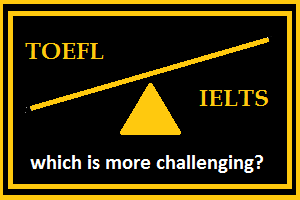 Each of the major tests that students generally take to get higher education in the United States – i.e. the GRE, GMAT, TOEFL tests – allows you to send you scores to a certain number of universities or colleges free of charge.
Each of the major tests that students generally take to get higher education in the United States – i.e. the GRE, GMAT, TOEFL tests – allows you to send you scores to a certain number of universities or colleges free of charge.
- GRE – 4 free score reports
- names of universities to be specified on the day of the test, immediately after your exam
- current fee per score report thereafter $ 18
- GMAT – 5 free score reports
- names of universities to be specified on the day of the test, immediately after your exam
- current fee per score report thereafter $ 28.00
- TOEFL – 4 free score reports
- names of universities to be specified one day before the test
- current fee per score report thereafter $ 25
- IELTS – 5 free score reports (to universities accepting an IELTS score) + 1 given to the candidate
- names of universities to specified in the IELTS application form
- additional score reports may be requested directly from the testing center – the fee for additional reports will be specified by the test center


